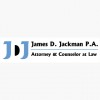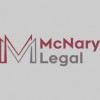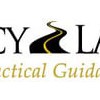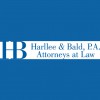
James D. Jackman P.A. is a Debt Relief Attorney serving Bradenton, Palmetto, Lakewood Ranch, Anna Maria Island, Sarasota, Longboat Key, including the Greater Tampa Bay counties of Manatee, Sarasota, DeSoto, Hernando, Hillsborough, Pasco, Pinellas and Polk. The law office of James D. Jackman, P.A. represents individuals in need of financial relief from overwhelming debts.
We have helped individuals obtain creative solutions for complicated financial and legal matters. We dedicate our time, talent and resources to ensuring clients receive the best outcome based on their needs. Bankruptcy lawyer James Jackman founded the firm in 1986 serving the Tampa Bay area dedicated to helping clients receive a fresh financial start.
We have helped individuals obtain creative solutions for complicated financial and legal matters. We dedicate our time, talent and resources to ensuring clients receive the best outcome based on their needs. Bankruptcy lawyer James Jackman founded the firm in 1986 serving the Tampa Bay area dedicated to helping clients receive a fresh financial start.
Services
James D. Jackman obtained his Bachelor of Science Degree in Accounting from the University of Akron in 1982 with a second major in finance. He earned his law degree from Nova Southeastern University Shepard Board Law Center in 1985. Jim's primary areas of practice include representation of Debtors in Chapter 7 liquidations and Chapter 13 reorganizations and small Chapter 11 cases.
When credit card debt, medical bills, utility bills, a mortgage and other financial obligations spiral out of control, you may be able to receive relief through a Chapter 7 liquidation bankruptcy. Under Chapter 7 protection, eligible individuals can wipe away or discharge most unsecured debts while keeping most - if not all - of their household possessions.
Chapter 11 Bankruptcy is a "reorganization" that gives business (small or large) such as corporations and partnerships an opportunity to continue operating as a business while they reorganize and renegotiate debt with their creditors. Chapter 11 Bankruptcy is also available for individuals with large debts and assets who do not meet the strict asset/debt limitations of Chapter 13 to restructure their debts.
Individuals who do not qualify for Chapter 7 bankruptcy protection due to their income may be able to achieve debt relief through Chapter 13 bankruptcy. Chapter 13 is a debt reorganization that enables you to repay and discharge most unsecured debts within three to five years.
It doesn't mean all of your creditors will be paid in full - some unsecured creditors may receive nothing from the plan, but the debt can still be discharged at end of plan.It provides many options for those facing overwhelming financial obligations. Chapter 13, therefore, may be the best solution to help you stop a foreclosure.
It doesn't mean all of your creditors will be paid in full - some unsecured creditors may receive nothing from the plan, but the debt can still be discharged at end of plan.It provides many options for those facing overwhelming financial obligations. Chapter 13, therefore, may be the best solution to help you stop a foreclosure.
Unsecured debts are those debts which are not guaranteed by any kind of collateral, such as a car or your home. In other words, if someone loaned you money in this way, they can't repossess anything. Many unsecured debts can be discharged in a Chapter 7 or Chapter 13 bankruptcy, including credit card debt, judgments, some taxes, medical bills, utility bills, and personal loans.
Reviews (1)
Manny Cruz
Dec 31, 2015
Report




